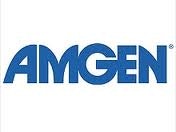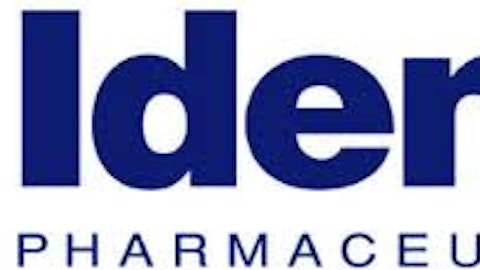Over the last three decades I have seen my share of bull and bear markets. And though no market cycle is exactly the same, there are eternal investing principles shareholders can depend upon like my Intelligent Investing Rule #1: Buy Great Companies for the Long-Term.

Buying big pharma and biotech stocks requires a long-term focus
Large-cap pharmaceutical and biotechnology companies have performed relatively well over the last year but still reflect compelling valuations for investors. Drug companies will continue to be a major driver of cost-effective healthcare solutions. Which is not to say the stocks are without risk. Investors will always worry about the quality of the research and drug development pipeline, about blockbuster drugs coming off patent and facing competition from generics or the efficacy of those drugs which have made it into late-stage testing. In these companies especially, valuation and a strong management team matter. There can be long dry spells where the stock price regroups and even treads water before the next break-out.
And, of course, you never know how long it will take. In April 2003, I gave an interview to The Wall Street Transcript where I recommended Genentech, Inc. (purchased by Roche Holdings in 2009) for a whopping 432.9% return over the subsequent six-year holding period. I had no idea Genentech, Inc. would appreciate so far so fast. I did know that it carried a cheap valuation, had a solid pipeline and was well managed. Consequently, I was prepared to hold it for the long term. But I’ve also owned Amgen, Inc. (NASDAQ:AMGN) since that interview and it has produced a much lower return. From April 2003 to June 11, 2013, the total return (including dividends) for Amgen, Inc. (NASDAQ:AMGN) is 76.64% or an annualized return of 5.73% versus the S&P 500 which returned 125.71% and an annualized return of 8.31%. Hardly a success. But is Amgen, Inc. (NASDAQ:AMGN) now poised for outperformance?
Amgen, Inc. (NASDAQ:AMGN) is attractively valued and well-managed
The stock boasts a compelling valuation — currently trading at 12 times 2014 earnings. The average large-cap biotech company trades at 17 times next year’s earnings and the average slower-growing, large-cap pharmaceutical company trades at 15 times 2014 earnings. Amgen, Inc. (NASDAQ:AMGN)’s new CEO, Robert Bradway, promised shareholders he would return 60% of adjusted net income and since his May 2012 appointment has initiated a dividend (and raised it twice over the period for a current yield of 1.9%). Bradway also put in place a $12 billion stock buyback.
The stock has responded well, up over 40% during the period. Still the market clearly expects slower growth from Amgen, Inc. (NASDAQ:AMGN) compared to the other biotech companies and is pricing the stock below even some big pharmaceutical companies based on its discounted price/earnings ratio.
Compared to big pharma AMGN boasts solid earnings growth at a deep discount
One of the most attractively priced large-cap pharmaceuticals, Merck & Co., Inc. (NYSE:MRK) yields 3.7% and trades at a slight price/earnings ratio premium to Amgen at 13 times 2014 earnings. The company boasts a robust pipeline and the stock received a big boost from the presentation of strong early-stage clinical trial results for lambrolizumab at the American Society of Clinical Oncology meeting earlier this month. Lambrolizumab is a checkpoint inhibitor that blocks cancer cells from hiding from the body’s immune system. The company may file for regulatory approval in 2015 and the drug clearly contains blockbuster potential. As is often the case, investors rewarded the stock with a 10% move initially, but it has since drifted down to pre-announcement levels. The pipeline is exciting but the stock lacks short-term catalysts and is expected to grow earnings in the low-single digits over the next 12 months. Bristol Myers Squibb Co. (NYSE:BMY) also announced strong early-stage clinical trial results for a drug similar to Merck & Co., Inc. (NYSE:MRK)’s that harnesses the immune system to kill cancer cells. The segment is red hot to be sure. Bristol Myers Squibb Co. (NYSE:BMY) is expected to post strong earnings growth of 17.6% in the coming year and boasts a yield of around 3%. But the stock is trading at 21.1 times 2014 earnings — a premium to the market and peer group. The good news seems priced into the stock in the near term.
The bottom line
Amgen’s Bradway is rationalizing the business and has targeted $1 billion in operating efficiencies by 2015. Though 82% of sales are concentrated in five drugs, the company has created a new blockbuster franchise in osteoporosis treatments that is expected to double to $3 billion in sales. Management’s commitment to returning value to the shareholder through dividend growth and stock buybacks of 60% of adjusted net income is also noteworthy. The stock carries an attractive valuation and expected earnings growth of 12% in the next year. Add to that a promising pipeline with late-stage data on new treatments for psoriasis and cholesterol expected by 2016 and you likely have a stock that complies with Intelligent Investing Rule #1.
I’ve said it before and I’ll say it again: Buy great companies for the long-term.
Nancy Tengler owns AMGN. The Motley Fool has no position in any of the stocks mentioned. Nancy is a member of The Motley Fool Blog Network — entries represent the personal opinion of the blogger and are not formally edited.
The article Amgen vs. Big Pharma: It’s Amgen for the Long Term originally appeared on Fool.com is written by Nancy Tengler.
Copyright © 1995 – 2013 The Motley Fool, LLC. All rights reserved. The Motley Fool has a disclosure policy.




